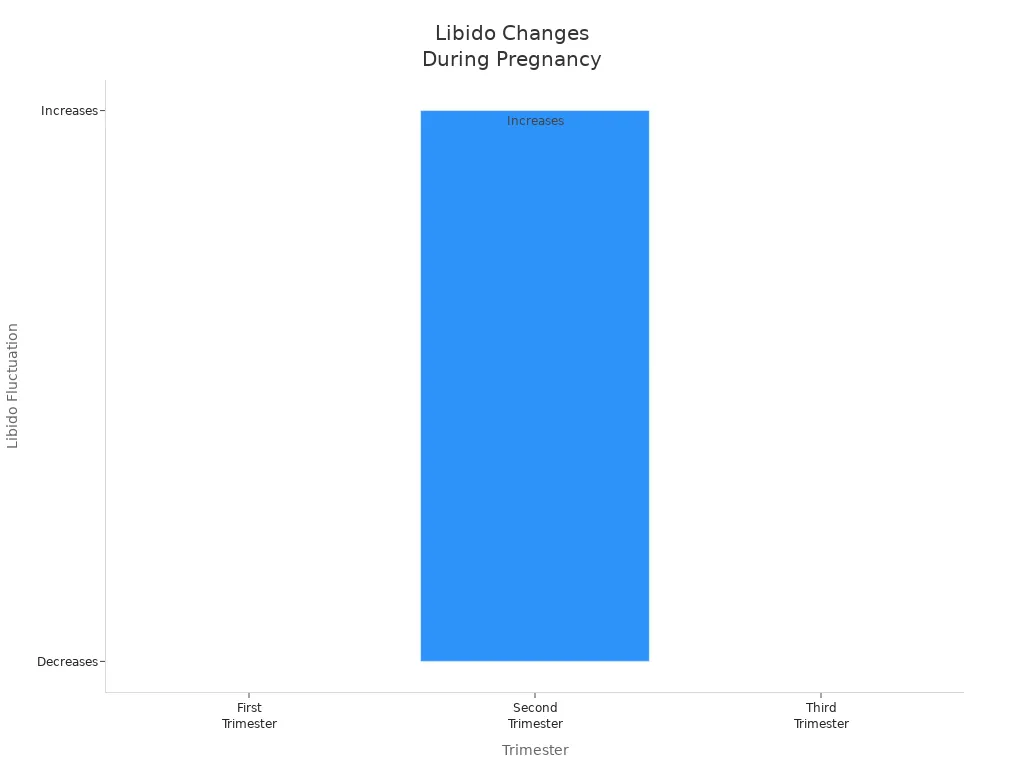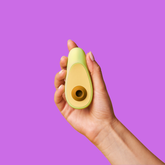Is Sex Safe While Pregnant and What Should You Avoid

You may wonder if sex while pregnant is safe. For most people, it is perfectly safe. However, your doctor or midwife might advise against it. There are times when you should avoid sex while pregnant, particularly if you have certain health issues, such as:
Infections like HIV or genital herpes, especially during an outbreak
High blood pressure conditions, such as pre-eclampsia or chronic hypertension
Other infections that could pose a risk to your baby
Having open and honest conversations with your partner and healthcare team can help you feel secure and comfortable.
Key Takeaways
Sex is usually safe during a healthy pregnancy. It does not hurt your baby. This is because the amniotic sac and womb muscles protect the baby.
Do not have sex if your doctor tells you not to. This may be because of health problems like placenta previa, infections, or early labour signs. This helps keep you and your baby safe.
Pick sexual positions that feel comfortable and do not press on your belly. Try lying on your side or woman on top. This is important in the later stages of pregnancy.
Talk openly with your partner and doctor about how you feel. Share your comfort and any worries. This helps you stay close and safe.
Look out for warning signs after sex. These include heavy bleeding, leaking fluid, or strong pain. Get medical help right away if these happen.
Sex While Pregnant: Is It Safe?

General Safety
It is normal to feel unsure about sex while pregnant. This is especially true if it is your first time being pregnant. Most people with healthy pregnancies can have sex safely. The American College of Obstetricians and Gynaecologists (ACOG) says sex, using fingers, or sex toys is safe for most people. Your baby is protected by the amniotic sac and strong womb muscles.
Some people worry that sex while pregnant could cause miscarriage or early labour. But studies show sex does not raise the risk of miscarriage or preterm birth in healthy pregnancies. Some research even says sex late in pregnancy might lower the chance of early delivery. You do not need to stop having sex just because you are pregnant, unless your doctor says so.
Your sex drive might change during pregnancy. This is normal. Hormones, feeling tired, and body changes can affect how you feel. If you want to stay close to your partner, talk about what feels good and what does not.
Tip: Sex while pregnant can help you relax, boost your mood, and help you sleep better. Listen to your body and go at your own pace.
When to Avoid Sex
Sometimes, sex while pregnant is not safe. Your doctor or midwife may tell you to avoid sex if you have certain health problems or symptoms. Here are some common reasons:
Signs of preterm labour (like regular contractions before 37 weeks)
Unexplained vaginal bleeding or spotting
Leaking amniotic fluid
Active infections, like genital herpes or untreated sexually transmitted infections
If you have placenta previa, sex can cause bleeding or contractions. Doctors often suggest "pelvic rest," which means nothing should go in the vagina, including sex. The same advice is given if you are at risk of preterm labour or have a weak cervix. There is not much proof that pelvic rest always works, but doctors use it to keep you and your baby safe.
Note: If you have any of these conditions, always follow your healthcare provider’s advice. They know what is best for you.
Medical Advice
You should always feel okay asking your doctor or midwife about sex while pregnant. If you are not sure if it is safe, do not guess—ask. Here are some steps you can take:
Talk to your healthcare provider before having sex if you have pain, bleeding, or other symptoms.
Wait until after your first prenatal check-up (usually around 10 weeks) before having sex again if you are worried.
Get checked if you have ongoing pelvic pain, strange discharge, or leaking fluid.
Avoid sex if you have been told you have placenta previa, cervical changes, a history of early labour, or an active infection.
Keep talking with your doctor and your partner. If you feel your worries are not being listened to, ask for another opinion.
See your doctor if you have pain during sex, heavy bleeding, or bad cramps.
If you see spotting that does not stop, sharp pain, or pressure in your bottom, get checked right away.
Sex should never hurt. If it does, stop and talk to your healthcare provider.
Remember: Your comfort and safety are most important. There are no silly questions when it comes to your health and your baby’s well-being.
What to Avoid in Pregnancy Sex

Risky Positions
As your pregnancy moves into the second and third trimesters, your body changes a lot. Some sexual positions can put too much pressure on your belly, especially after 20 weeks. You want to keep both you and your baby comfortable and safe. Try to avoid lying flat on your back for long periods, as this can reduce blood flow and make you feel dizzy.
Medical experts suggest these positions as safer choices during later pregnancy:
Side-by-side sex at an angle: You and your partner lie on your sides in a V shape. This keeps pressure off your belly and lets you stay close.
Woman on top: You control the depth and speed, so you can avoid any discomfort or pressure on your abdomen.
Chair sex: You straddle your partner while they sit on a chair. This keeps your weight off your belly.
Side-by-side sex from behind: Both of you lie on your sides, with penetration from behind. This allows for shallow penetration and more comfort.
Here’s a quick table to help you choose safe positions as your pregnancy progresses:
Trimester |
Recommended Safe Positions |
|---|---|
Second Trimester |
Doggy style, Cowgirl, Spider |
Third Trimester |
Spooning, Reverse cowgirl |
If you ever feel uncomfortable or have pain during sex while pregnant, stop and try a different position. Your comfort comes first.
Unsafe Activities
Some activities are not safe during pregnancy because they can cause injury or infection. You should avoid:
Rough or forceful sex, which can hurt you or cause bleeding.
Introducing air into the vagina. This can lead to a rare but serious problem called air embolism. Air can enter your bloodstream and cause sudden death, especially during pregnancy or soon after birth. Even though it is rare, it is very dangerous.
Using sex toys that are not clean or are shared, as this can increase the risk of infection.
Anal sex if you have haemorrhoids or are at risk of infection.
Any sexual activity that causes pain, discomfort, or bleeding.
You should also avoid these activities in daily life:
Contact sports like football or boxing.
Activities with a high risk of falling, such as skiing or rock climbing.
Amusement park rides with sudden movements.
Changing cat litter, to prevent infection.
Heavy lifting.
Smoking, using illegal drugs, or taking certain medicines without your doctor’s advice.
Eating raw eggs or too much caffeine.
Using hot tubs or saunas, as overheating can harm your baby.
If you are ever unsure about an activity, ask your healthcare provider.
Tip: Always listen to your body. If something feels wrong or uncomfortable, stop right away.
Warning Signs
Sometimes, sex while pregnant can cause symptoms that mean you need to see a doctor straight away. Watch out for these warning signs:
Heavy vaginal bleeding, more than just spotting.
Fluid leaking from your vagina, which could mean your waters have broken.
Vaginal discharge that smells bad.
Severe or ongoing cramps or belly pain that does not go away.
Passing large clots or tissue.
Severe swelling, redness, or pain in one leg or arm.
Dizziness, chest pain, or trouble breathing.
Light spotting after sex while pregnant can happen and is usually harmless. It often comes from the cervix being more sensitive. But if you see blood like a period, pass clots, or have pain with bleeding, get help right away. Fluid leaking, especially if it is clear or pinkish, could mean your waters have broken early. This is an emergency.
Other signs of preterm labour include:
Changes in vaginal discharge (watery, mucus-like, or bloody).
Pelvic or lower abdominal pressure.
Constant, low backache.
Mild cramps, with or without diarrhoea.
Regular contractions or tightening.
A sudden gush or trickle of fluid.
If you notice any of these, call your midwife or doctor as soon as possible.
Note: Your safety and your baby’s health matter most. Never ignore warning signs. It is always better to check with your healthcare provider if you are worried.
Comfort and Intimacy
Communication
Talking openly with your partner can make a big difference during pregnancy. You might notice your feelings and desires change from week to week. That’s normal. Try to share your thoughts and listen to your partner’s as well. Here are some ways to keep your bond strong:
Show patience and understanding when emotions run high.
Talk about your feelings and any worries you have.
Agree on new roles or chores early to avoid stress.
Listen with empathy and try to see things from each other’s side.
Focus on affection, not just physical intimacy.
Set clear boundaries and check in with each other often.
Good communication helps you feel supported and less anxious. It also builds trust and makes it easier to ask for help if you need it.
Comfortable Positions
As your body changes, you may find some positions more comfortable than others. Many healthcare professionals suggest these options:
Rider on top: You control the movement and depth, which can help you avoid pressure on your belly.
Spooning (side-lying): Both of you lie on your sides. This keeps weight off your bump and supports your back and hips.
Doggy style: Penetration from behind can relieve pelvic pressure. You can use pillows for extra support.
A side-lying position is gentle on your body and can even help with blood flow. You might also find it easier to relax and enjoy the moment.
Position |
Comfort Level |
Notes |
|---|---|---|
Rider on top |
High |
You set the pace |
Spooning |
High |
Good for late pregnancy |
Doggy style |
Medium |
Use pillows for support |
Alternatives
You do not have to stick to penetrative sex while pregnant. Many couples enjoy other ways to stay close:
Oral sex and masturbation are usually safe if you feel comfortable.
Cuddling, kissing, and massage can help you feel connected.
Mutual masturbation lets you both enjoy intimacy without pressure.
Masturbation can help you relax and explore your changing body. Orgasms might cause mild cramps, but these are usually harmless. If you have a high-risk pregnancy or any complications, always check with your doctor before trying new things.
Remember: There’s no right or wrong way to be intimate during pregnancy. Do what feels best for you and your partner.
Myths and Facts
Baby Safety
You might hear a lot of myths about sex while pregnant. Some people say it can hurt your baby or even cause a miscarriage. These ideas can make you feel worried or guilty. The truth is, for most healthy pregnancies, sex does not harm your baby at all. Your baby stays safe inside the womb, protected by the amniotic sac, the strong muscles of your uterus, and a thick mucus plug at the cervix. These act like a cushion and a closed door, keeping your baby safe from any bumps or germs during sex.
Here are some common myths and facts:
Myth: Sex during pregnancy is dangerous for the baby.
Fact: Sex is safe for your baby in an uncomplicated pregnancy.
Myth: Sex while pregnant is immoral or should be avoided.
Fact: This belief comes from culture, not medicine. Medical experts say sex is fine unless you have certain health problems.
Myth: You must stop all intimacy as your bump grows.
Fact: You can keep being close with your partner. You might just need to try new positions for comfort.
If your doctor tells you to avoid sex because of bleeding, placenta problems, or risk of early labour, always follow their advice.
Cultural beliefs can also shape how you feel about sex while pregnant. In some places, people think it is sinful or risky. In others, they believe it helps the baby grow. These ideas can cause stress or anxiety. Medical research shows that sex is safe for most people, so talking to your healthcare provider can help clear up any worries.
Sex Drive Changes
Your sex drive can change a lot during pregnancy. You might feel less interested in sex, or you might want it more than usual. This is normal. Hormones play a big part in how you feel.
Let’s look at how your sex drive might change:
Trimester |
What You Might Feel |
|---|---|
Tired, sick, or sore breasts can lower your interest in sex. |
|
Second Trimester |
Energy returns, nausea fades, and you may feel more aroused and comfortable. |
Third Trimester |
Your bump gets bigger, you may feel sore or tired, and your sex drive may drop. |

Most people notice a dip in desire during the first and last parts of pregnancy. The second trimester often brings a boost, as you feel better and more relaxed. You are not alone if you feel different from one week to the next. Surveys show that many pregnant people experience changes in desire, and this is nothing to worry about.
Remember: Your feelings are valid. Talk to your partner and your doctor if you have questions or concerns about sex while pregnant.
Sex during pregnancy is usually safe for most people. Your baby is kept safe by your body’s natural barriers. Always pay attention to how you feel and talk with your partner. Speak to your healthcare provider if you have worries. If you see strange symptoms or have a high-risk pregnancy, get medical help quickly. Every pregnancy is different, so trust yourself and do what feels best. Good communication and regular check-ups help keep you and your baby healthy.
FAQ
Can sex hurt my baby during pregnancy?
No, sex does not hurt your baby. Your baby stays safe inside your womb, protected by strong muscles and a fluid-filled sac. You can relax and enjoy intimacy unless your doctor tells you otherwise.
Is it normal to lose interest in sex while pregnant?
Yes, it is very normal. Hormones, tiredness, and body changes can affect your desire. Some people want sex more, others less. Talk to your partner about how you feel. You are not alone.
Should I use condoms during pregnancy?
You should use condoms if you or your partner have a sexually transmitted infection or if you have more than one partner. Condoms help protect you and your baby from infections.
What if I feel pain during sex?
Stop right away if you feel pain. Try a different position or take a break. If pain continues, speak to your doctor or midwife. Pain is not normal and needs checking.


